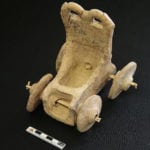 Weird Stuff
Weird Stuff  Weird Stuff
Weird Stuff  Mysteries
Mysteries 10 Tragic Disappearances and Deaths in Joshua Tree National Park
 History
History 10 Ways Childhood Really Sucked in the Old West
 Music
Music 10 Name Origins of Famous Bands from the 1990s
 Religion
Religion 10 Biggest Turnarounds by the Catholic Church
 Weird Stuff
Weird Stuff 10 Unbelievable Times Laws Had Unintended Consequences
 Humans
Humans Ten Historic Women Who Deserve Way More Credit Than They Got
 Movies and TV
Movies and TV 10 Films That Spawned Major Lawsuits
 History
History Ten Times Towns Were Wiped Off the Face of the Earth
 Creepy
Creepy 10 of the Most Disturbingly Haunted Public Houses in the UK
 Weird Stuff
Weird Stuff 10 Niche Subcultures That Are More Popular Than You Might Think
 Mysteries
Mysteries 10 Tragic Disappearances and Deaths in Joshua Tree National Park
 History
History 10 Ways Childhood Really Sucked in the Old West
Who's Behind Listverse?

Jamie Frater
Head Editor
Jamie founded Listverse due to an insatiable desire to share fascinating, obscure, and bizarre facts. He has been a guest speaker on numerous national radio and television stations and is a five time published author.
More About Us Music
Music 10 Name Origins of Famous Bands from the 1990s
 Religion
Religion 10 Biggest Turnarounds by the Catholic Church
 Weird Stuff
Weird Stuff 10 Unbelievable Times Laws Had Unintended Consequences
 Humans
Humans Ten Historic Women Who Deserve Way More Credit Than They Got
 Movies and TV
Movies and TV 10 Films That Spawned Major Lawsuits
 History
History Ten Times Towns Were Wiped Off the Face of the Earth
 Creepy
Creepy 10 of the Most Disturbingly Haunted Public Houses in the UK
10 Amazing Sea Survival Stories
Tales of survival at sea and on its most inhospitable islands have fascinated man since he first set sail into the deep blue unknown. Collected here are 10 of the most incredible such tales.
10 Pedro de Serrano
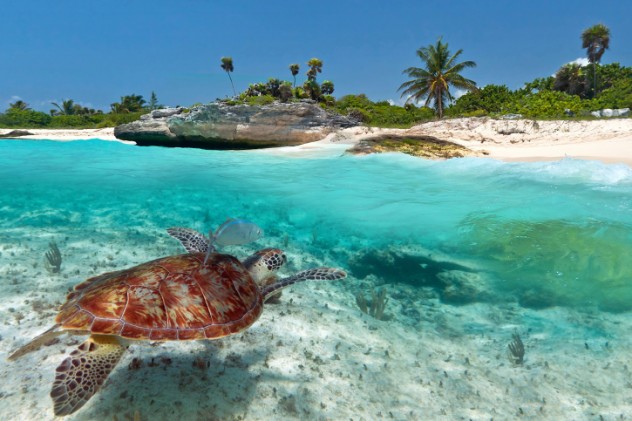
Pedro de Serrano is considered the OG of castaway survival. It’s not clear how the Spaniard’s ship sank or how he alone ended up on an island in the Caribbean, but he did. He made it ashore with only the knife in his mouth and the shirt on his back.
The island was little more than a large strip of sand, nearly devoid of flora and shade. Also, this was still the New World, only about 50 years removed from Columbus getting lost there. Ships weren’t exactly popping up on the horizon on the regular and Serrano knew it.
Serrano’s physical survival depended on turtles. He killed the reptiles, ate their meat, and used the shells to collect water. With no other animals on the island, Serrano was unable to clothe himself when his clothing fell to rags. Serrano’s only relief from the sun was a dip in the ocean.
Three years went by before Serrano spotted a ship, which wrecked, dashing Serrano’s hopes of rescue. A single sailor survived and the current deposited him on Serrano’s island. Serrano—more beast than man—initially terrified the beleaguered sailor, but eventually the two were able to cooperate and preserved their sanity by observing a strict schedule each day.
Of course, sharing a strip of sand as one eats nothing but turtle meat and the sun boils one’s skin tends to make a person a little irritable. At some point during their four years together, Serrano and the other sailor split the island over an argument, each keeping half until another ship drew past, stopped, and rescued the two men after the survivors first attested they were not devils.
9 Jeronimus Cornelisz
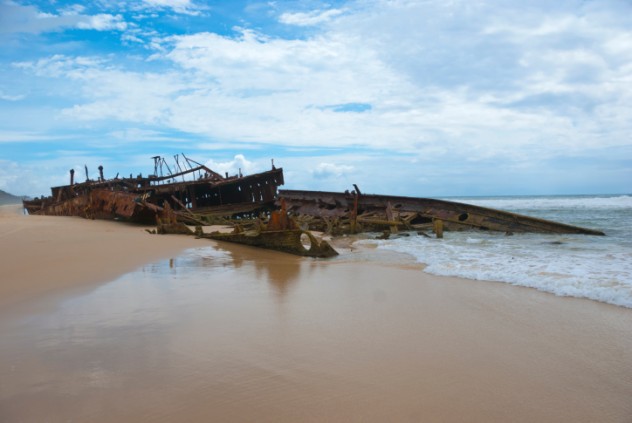
Unlike most shipwrecked castaways, isolation wasn’t the problem after The Batavia ran aground in 1629. Hundreds of people made it to an island off the west coast of Australia, but the wreck was just the beginning of the ill-fated spice run’s troubles.
Cornelisz, one of the ship’s officers, had tried starting a mutiny when the Dutch East India Trading Company vessel wrecked. Afterward, the ship’s captain took a dinghy and 40 men to sail for Java, promising to come back to rescue the 300 survivors. With the captain gone, Cornelisz became the ranking officer. He had two worries: running out of supplies and being arrested for attempted mutiny if rescuers arrived.
Cornelisz began his reign of terror by hoarding all the salvaged provisions from The Batavia. Sailors loyal to him guarded the stockpile round the clock. To cull the survivors, Cornelisz and his men used the lifeboat and dropped groups off to search for water on other islands believed barren—and by “search,” Cornelisz meant “die,” because he had no intention of returning for any search party. Cornelisz planned on hijacking the rescue ship and wanted to eliminate any opposition on the island. He and his men executed survivors for minor offenses or none at all.
During the killing spree, a gathering party signaled that it had successfully found food and water on another island. Unfortunately for Cornelisz, that party was led by a soldier named Wiebbe Hayes, who had figured out Cornelisz’s deadly plan. Hayes’s 45 men defeated their heavily armed attackers with slingshots and pikes and imprisoned Cornelisz in a pit on the beach. Undaunted, surviving mutineers started bombarding Hayes’s position with cannon fire just as the promised rescue ship appeared on the horizon. Several months had passed and over 100 people had died at Cornelisz’s behest before the rescue ended the mutineers’ reign of terror.
8 Robert Drury

Drury was an English sailor on The Degrave in 1703. After the ship was damaged, the crew, including Drury, was forced to abandon it near Madagascar. However, making it to shore was the start of Drury’s problems. Remember the scene in Pirates of the Caribbean: Dead Man’s Chest in which Jack Sparrow is chased by an entire army of natives? It was kind of like that for Drury, only there was no ship to escape to.
Drury and the rest of the crew spent their first four days on Madagascar trying to evade some 2,000 Tandroy warriors. When the Tandroy finally caught the crew, they executed every man, but Drury and three other boys were spared—and then enslaved. Drury spent eight years as a royal manservant and worked hard enough to gain some manner of respect, eventually battling alongside his Tandroy captors. As a result, the Tandroy eventually granted Drury a degree of freedom, and he was allowed to marry a fellow captive and raise cattle of his own.
After almost 15 years as a slave, Drury escaped Madagascar alone, aboard an English slave ship. Drury’s wife refused to leave, fearing the Tandroy myth which promised an unnatural death to any slave who escaped. Drury struggled to find a place in English society, and in a bizarre twist, actually returned to Africa, but this time as a slaver.
7 Philip Ashton
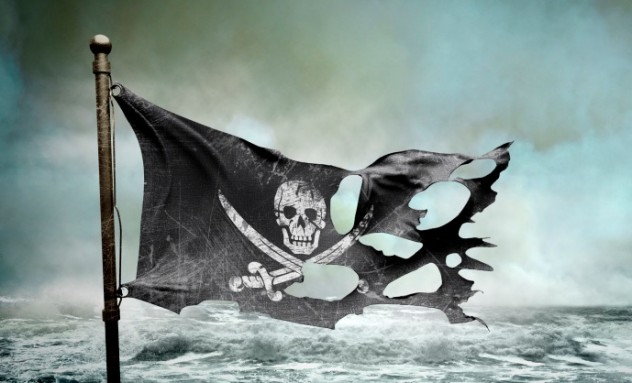
Philip Ashton was minding his own business working on a fishing boat off the coast of Nova Scotia in 1723 when he and his fellow sailors were captured by pirates. The pirate captain, Ned Low, gave the men a choice—become pirates or die. Philip Ashton was 19. He chose “pirate.”
Ashton wanted no part of the cruelty and barbarism which now surrounded him, nor did he want to be executed for piracy when Captain Low’s luck finally ran out. Eight months into his pirate career, Ashton found his chance to escape. Low anchored off the coast of an island near Honduras and sent men, including Ashton, ashore to attain freshwater. As the men finished filling the ship’s casks with water from a stream, Ashton innocently strolled away. When his fellow pirates asked him what he was doing, Ashton yelled “Coconuts!” and took off into the jungle. A week later, the search for Ashton was over and he was alone. The island was plentiful with fruit and tortoise eggs, which was good, since Ashton was barefoot and empty-handed when he escaped.
That changed after nine months of isolation when a Spanish trader in a canoe stopped at the island. He promised to send help to Ashton’s island after he left. In the meantime, he left Ashton with a knife and flint, which allowed him to hunt and cook for the first time since being marooned. It was seven more months before another group of sailors would rescue Ashton.
6 The Crew Of The Peggy
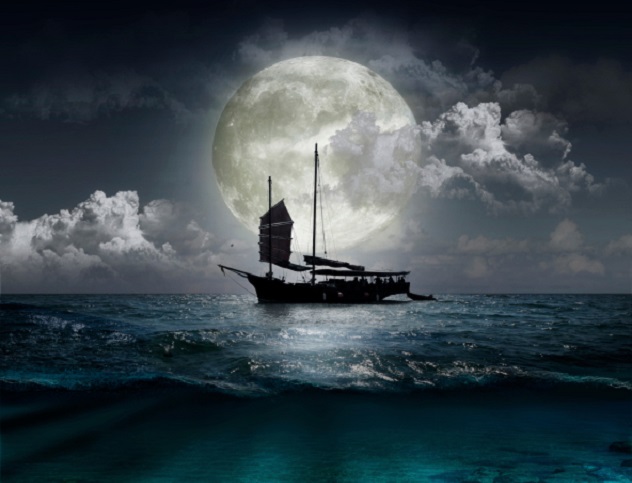
American sloop The Peggy was returning to New York in 1765 after trading in the Azores. For almost the entire month of November, The Peggy struggled to cross the Atlantic as one storm after another pounded the ship. The mast, sails, and rigging were all damaged. The ship was adrift and it’s hull was leaking badly. What few provisions survived the storms were quickly exhausted as the crew worked desperately to keep The Peggy afloat. It was obvious the men of The Peggy would starve long before reaching land, even after the ship’s cat was killed and eaten. Their only hope was the unlikely chance another ship might pass nearby.
Initial talk of cannibalism among the crew was shut down by the captain, David Harrison, but it was futile. By mid-January, the crew had eaten all the leather and candles aboard the ship, and with Captain Harrison bedridden, the crew resorted to cannibalism. The customary lottery was mere pretense—it seems the crew had already decided Harrison’s black manservant should be the one to make the ultimate “sacrifice.”
At the end of January, the body of the servant was gone and the captain clung to life on a mixture of water and rum rather than take part in the cannibalistic proceedings. A second lottery was conducted, but the victim, David Flatt, was granted a night’s reprieve to pray thanks to the pleas of a haggard Captain Harrison. Miraculously, a London-bound ship brought salvation to all aboard The Peggy—including Flatt—the next morning. The crew of The Peggy had been preparing a fire to cook the next victim when the captain of The Susan provided the starving sailors with food, tackle, and escort to London.
5 Robert Jeffery

Robert Jeffery was a young sailor in the Royal Navy in 1807. While aboard the HMS Recruit, he sneaked an extra drink of beer. The captain, who may have been drunk himself, responded to the offense by marooning the 18-year-old on the next island the ship passed. Jeffery was left on a rocky outcropping with no food or water as the crew begged their captain to reconsider. Jeffery’s story would have ended soon after, had an American ship not rescued him just nine days later. In fact, the “case” of Robert Jeffery was just beginning.
The public was outraged by the Captain’s behavior and court martial followed. In 1810, when the missing Robert Jeffery was found living in Massachusetts working as a blacksmith, another public fervor erupted. Jeffery’s mother was still alive and well in England and the British citizenry demanded they be reunited. A Royal Navy vessel was dispatched and the public waited in suspense for its—and Jeffery’s—return.
When Robert Jeffery finally arrived back in his hometown in England, church bells and waiting crowds greeted him. The press and public watched as mother and son reunited in heartfelt excitement. One last public outcry served to help Robert Jeffery—the captain who had marooned Jeffery three years earlier was found and compelled to pay his former crewman reparations for having nearly killed him.
4 Charles Barnard
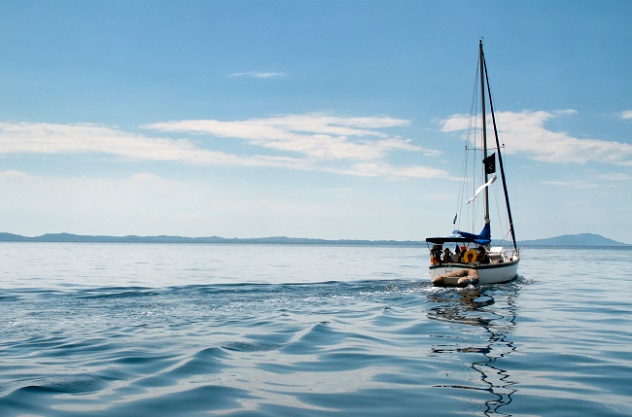
Captain Charles Barnard spotted smoke while on a sealing expedition near the Falklands in 1812. When he investigated, he found 45 shipwrecked British sailors. Barnard promised to deliver them to the nearest South American port so long as they promised not to hijack the ship, since the War of 1812 was raging up north. Proof that no good deed goes unpunished, when Barnard stopped at another island and went ashore in a small boat to hunt pigs to feed everyone aboard, the Brits he rescued from certain death sailed away in his ship. What Barnard likely never imagined was that the British would leave three of their own to die with him.
Barnard, his one fellow American, and the three British sailors survived for 18 months on various islands and in their rowboat until a British ship rescued them in 1814. Barnard and his companions, now all “Americans,” asked to be put ashore in his boat off the coast of Peru, only to be identified and imprisoned as Englishmen by the Spaniards. It took months for Barnard to clear his name, but he found passage again on a British ship and again asked to be cut loose in his little seal boat, this time to do some sealing. Barnard didn’t find the seals he’d hoped for, but he did find an American ship which offered him passage. Barnard accepted and sailed to China and the Sandwich islands before returning to America in 1816.
3 The Crew Of The Essex
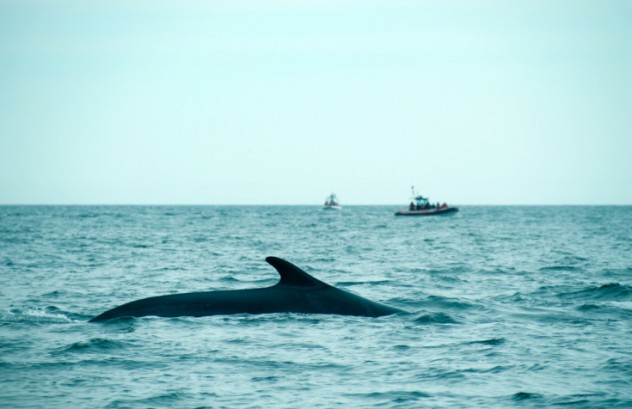
The accounts of the whaleboat The Essex directly inspired Herman Melville to write Moby Dick, as The Essex was to the “19th century what the Titanic was to the 20th.”
In 1819, The Essex left Nantucket for what was expected to be a two-and-a-half-year whaling expedition. On the second day of the voyage, strong storms seriously damaged the ship and threatened to sink it, but the ship was refitted and pressed onward. Several months later and a thousand miles from land, an enormous whale rammed the ship. As the crew started to assess the damage, the whale struck the ship again, holing the ship so viciously, the men aboard hurriedly lowered the boats and grabbed a few provisions.
The 20 men, spread across three boats, decided to head south for fear of cannibals on the nearest land, the Marquesas Islands. It was a fateful decision. Within weeks, the boats were leaky and the food stores were gone. The first man who died was immediately consumed. Three more sailors died and each was cooked and eaten. One of the three boats disappeared, never to be heard from again. The other two boats, one led by Captain Pollard and the other headed by First Mate Owen Chase, became separated.
After 89 days at sea, the three men on Chase’s boat were rescued by an English ship. Aboard Pollard’s boat, the men drew lots and Pollard’s younger cousin was next eaten, though Pollard asked to take his place. A week after Chase was rescued, an American ship found Pollard and another crewman gnawing on the bones of their shipmates, still crazed with hunger. Decades later, Melville met the captain who inspired his fiction, but only exchanged pleasantries out of respect for Pollard’s ordeal.
2 The Other Survivors Of The Essex
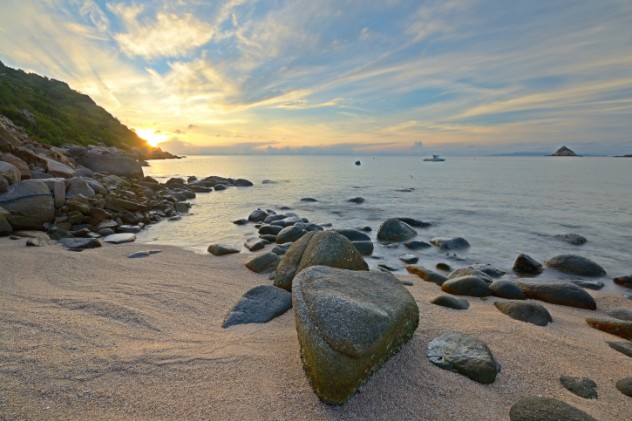
Not long after the crew in their whaleboats departed the foundering Essex, they spotted what is now Henderson Island. The men went ashore thinking of salvation, only to find a barren wasteland. Despite the island’s lack of freshwater and food, three men chose to chance it and stay behind. At the very least, the three boats’ meager supplies might go a little farther that way.
It proved a comparatively good choice, though the situation was almost always desperate. Rainwater which collected in rock pools around the island helped slake the men’s thirst, but food was difficult to come by. They lacked the equipment to fish and quickly devoured the crabs that inhabited the small island. The trio was reduced to drinking the blood of whatever birds they could catch and found a poignant portend of their likely future when they stumbled across the skeletons of several previous castaways.
Nearly every resource on the island had been exhausted during the 111 days the men spent there. Were it not for Owen Chase beckoning his rescuers to search the Pitcairn Islands, the three crew members left behind on Henderson would almost certainly have died of thirst, as the previous castaways to find themselves on the island did.
1 Bernard Carnot
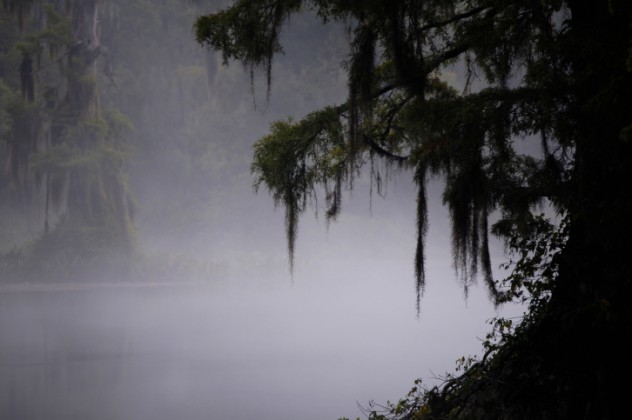
Not much is known about Bernard Carnot. All that is know for certain is that he was the son of a New Orleans innkeeper, and through a series of misunderstandings, he was convicted of a murder he did not commit and sent to Devil’s Island in 1922 part of the French penal colony system off the coast French Guiana.
Devil’s Island, as the name suggests, is hell on earth. It’s a rocky jungle of an island, rife with tropical disease, mosquitoes, and prisoner-on-prisoner violence. It was surrounded by sharks, as well as currents that had a tendency to dash one against the rocks which surround Devil’s island.
After sixteen years, almost all record and trace of Carnot had disappeared—that is, until an American Don Quixote, William Willis, met Carnot’s mother in New York. Hearing Carnot’s mother’s tale, Willis traveled to South America and enlisted the help of ex-convicts and current prisoners within the penal colony to find Carnot and help the him escape. When Carnot was found, he was barely alive and wearing nothing but rags. Willis provided him with a fake passport, money, and clothing, then smuggled Carnot aboard a supply ship which took him to Brazil. As if he hadn’t suffered enough, it’s believed that Carnot may have been killed in action after joining the French forces under Charles de Gaulle during World War II.







